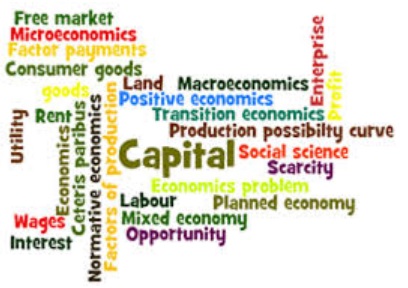
Technical English for Economics is a course material focused on reading, speaking, listening, and writing, designed specifically for first-year Master's students in Economic Sciences, second semester 2024/2025, at the Faculty of Economics, Commercial and Management Sciences at Eloued University.
This coursebook aims to enhance students' ability to understand and articulate essential concepts in economics and business.
Technical English for Economics covers key economic areas such as macroeconomics and microeconomics, along with topics like aggregate demand an aggregate supply, inflation and its causes, fiscal and monetary policy, international monetary and financial systems, international financial institutions and their role, financial crises and their causes, and the importance of financial stability and risk management.
Typically, each subject is organized into three main parts:
- An informative reading passage that introduces a specific topic, discusses key business and economic concepts, and integrates relevant technical terms.
- A glossary featuring the most important terms, their definitions, explanations of usage, and their Arabic translation
- A grammar injection that includes the common rules
- A set of comprehension and vocabulary exercises tied to the topic.
- Teacher: Lemehannet Aicha

Technical English for Economics is a reading, speaking, listening and writing course-material that is intended for first year Master Economic Sciences students - Economics and Institutions Management - of the Faculty of Economics, Commercial and Management Sciences of Eloued University.
This coursebook helps students to improve their ability of understanding and expressing the key concepts of economics and business.
Technical English for Economics encompasses key areas of economics such as macroeconomics and microeconomics, as well as topics including the business cycle. Additionally, it addresses stock markets, banking, Islamic finance, banking services marketing, accounting, and job interviewing.
Generally, the subjects consist of three parts:
- An informative reading passage that provides an introduction to a specific topic, presents essential business and economic ideas, and incorporates a significant amount of relevant technical terminology, along with a concise review of certain grammatical principles.
- A range of comprehension and vocabulary exercises related to the topic.
- A table containing the most important terms along with explanations of their meanings and uses, in addition to their translation into Arabic.
- Dr.: Lemehannet Aicha
صدر ىذا المعيار في 2003 وأصبح ساري المفعول اعتبا ا ر من 01
الأولى من خلال بيان صريح وواضح وغير متحفظ حول الالت ا زم بيا,
- Teacher: bachir zebidi
- Teacher: Samira SEMMAK

"Economic English Terms" module is designed mainly to meet the economic sciences students' needs through learning the most important terms that are related to the economic issues.
Texts are chosen accurately in order to give students the fundamental terminology for its further utilization in economic practice and to help them improve their level in economic English. Also, the acquired terminology helps students to use English references for completing their memos.
"Economic English Terms" module includes three (3) parts; the first one will be focusing on "International trade"
- Teacher: Lemehannet Aicha

Finance and international trade lessons provide
students with a comprehensive understanding of the financial and trade aspects
of global business. These lessons cover the basic principles of financial international
trade, and provide students with the skills to analyze financial statements and
evaluate financial performance. In addition, these lessons explore the various
types of international trade, including importing, exporting, and foreign
direct investment, and examine the legal and regulatory frameworks that govern
international trade. Students also learn how to analyze international markets,
identify potential business partners, and develop market entry strategies. The
lessons also cover the financial aspects of international trade, including
foreign exchange rates, currency risk management, and financing international
transactions. Overall, finance and international trade lessons equip students
with the knowledge and skills necessary to succeed in a variety of roles in
international finance and trade, and to navigate the complex financial and
trade landscape of global business
- Teacher: Hicham GHARBI
